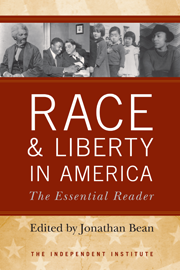If you are a strong student at UC San Diego with middle-class college-educated parents and wish to transfer to a “selective major” (engineering, data science, public health), the university isn’t interested in you. A new directive gives one point each for California residency, first-generation college-student status, low income, and a GPA above 3.0—a low bar for “selective” admissions. This is the latest instance of exclusionary practices in the name of “equity.” Merit takes a back seat to socioeconomic status. Your family tree matters more than your academic performance. California has taken a page from the population-classification schemes of now-defunct Marxist regimes.
Proposition 209 bars California universities from explicitly using race as a criterion, but they have spent 30 years engineering their results through holistic admission criteria, the elimination of SATs, and socioeconomic-class proxies.
But California is not alone. Other states and the federal government responded to earlier court challenges by including class in programs that target underrepresented minorities. The federal McNair program offers funding to minority graduate students and non-minority first-generation low-income students. The GPA requirement is as low as 2.50. Low GPA thresholds are needed to reach a significant number of African-American and Hispanic students, whose high–school GPA averages are 2.68 and 2.83, respectively. Asian and white students have GPA averages well above 3.0.
Some observers interpret the addition of class-based preferences as a response to the Supreme Court’s 2023 decision striking down race-based affirmative action. Yet calls for class-based measures date back to the civil-rights era. In 1964 President Lyndon Johnson signed the explicitly color-blind Civil Rights Act into law. That same year Martin Luther King Jr. proposed a “Bill of Rights for the Disadvantaged,“ which included the “forgotten white poor.” This was a path not taken. Federal agencies soon threatened colleges and employers with legal action and denial of federal funding if they did not produce racially proportionate outcomes. Corporations and colleges got the message and introduced racial preferences. With some exceptions, the courts upheld this bias until last year’s decision signaled a sharp turn to colorblind law.
Is class-based affirmative action better than race preferences? “Affirmative action prophet” Richard Kahlenberg has long agitated for class not race criteria in college admissions. After the Supreme Court struck down race-based admissions, he took to the New York Times and other liberal venues to advocate admitting more lower-income students from poor and crime-ridden neighborhoods as exemplars who “overcame obstacles.”
Kahlenberg is right that most minorities admitted to elite colleges—like their white classmates—are well-off. Many are the children of immigrants whose families experienced no history of discrimination in America. Swapping class for race would make elite colleges more economically diverse. He’s also right that class-based affirmative action is safer from legal challenge. The courts have accepted class-based policies for more than a century based, for example, on income or the employer’s size.
Yet class-based affirmative action is an illusion. If America had pursued King’s approach we might have avoided six decades of affirmative-action debate. But current practices and an institutional mindset are ingrained and defended vigorously. There’s a reason why Kahlenberg’s quixotic pleas went unheard.
By prioritizing class over academic performance, the practice is a further assault on the social norm that we ought to treat individuals according to their merit and the “content of their character,” not their skin color or parental status. Kenny Xu makes this case in his passionately argued An Inconvenient Minority: The Harvard Admissions Case and the Attack on Asian American Excellence (2022). The assault on excellence affects all of us and weakens America in its competition with nations that don’t hamper the academically gifted.The law should protect all individuals regardless of their status. Racial discrimination is odious because we can’t change our skin color and it violates our dignity as individuals. Likewise, we cannot change our parents. It is one thing to tax wealthy Americans more heavily than those with lower incomes, but it is another to exclude their 18-year-old children from high-demand majors because their parents are “too successful.” It is unfair and unwise to disadvantage young people simply because they chose the wrong parents.









